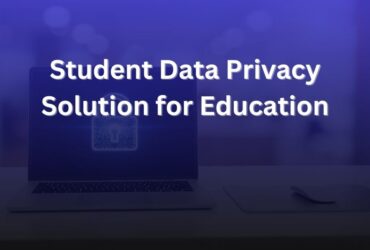To promote digital citizenship in the classroom, teach media literacy skills for critical analysis of online content. Encourage students to question and evaluate information sources to develop a responsible online presence.
By fostering media literacy, students can navigate the digital world with awareness and integrity, promoting positive digital citizenship practices. Empowering students to be discerning consumers and creators of online content is essential for promoting a safe and respectful digital environment.
Incorporating media literacy education equips students with the skills to engage thoughtfully and ethically in the digital landscape, ensuring they contribute positively to online communities. Through media literacy, educators can instill values of responsible digital behavior and empower students to become informed and conscientious digital citizens.
The Pillars Of Digital Citizenship
To promote digital citizenship in the classroom, educators can focus on teaching media literacy, empowering students as leaders, incorporating global stories into the curriculum, organizing penpals, and implementing tools to enhance digital citizenship skills both in the classroom and at home. Through these tactics, students can learn to be responsible and ethical digital citizens.
Defining Digital Citizenship
Digital citizenship encompasses the responsible use of technology and the internet to engage with the digital world positively.
Core Values And Principles
– Respect: Treat others online as you would in person.
– Responsibility: Be accountable for your actions and online behavior.
– Integrity: Practice honesty and authenticity in your digital interactions.
– Safety: Protect your personal information and prioritize online safety.
– Critical Thinking: Evaluate online content critically and discern fact from fiction.
Implementing these core values and principles in the classroom fosters a culture of digital citizenship among students.

Credit: www.goguardian.com
Curriculum Integration
To promote digital citizenship in the classroom, curriculum integration is key. Incorporate media literacy teachings to help students analyze and evaluate online information, fostering critical thinking skills. Implement student-led initiatives and global learning opportunities to empower them as responsible digital citizens.
Incorporating Digital Citizenship In Lesson Plans
When it comes to integrating digital citizenship into lesson plans, educators can incorporate various activities and discussions that emphasize the importance of responsible online behavior. By integrating digital citizenship concepts into lesson plans, students can develop a deeper understanding of their roles as responsible digital citizens.
Media Literacy Skills Development
Teaching media literacy skills is essential for promoting digital citizenship in the classroom. Educators can focus on helping students critically analyze and evaluate the information they encounter online. By developing media literacy skills, students can become more discerning consumers and creators of digital content.
Interactive Learning Activities
To promote digital citizenship in the classroom, interactive learning activities can be used. For instance, teaching media literacy to students can help them access, analyze, evaluate, create and act using all forms of communication. Other tactics include organizing penpals, incorporating global stories, and empowering students as leaders and teachers.
Teachers and administrators should also implement tools and processes to promote digital citizenship skills in the classroom and at home.
Role-playing Digital Scenarios
Interactive learning activities play a crucial role in promoting digital citizenship in the classroom. Role-playing digital scenarios is an effective way to engage students in discussions about real-life online situations. By assuming different roles, students can explore the consequences of their digital actions and learn how to make responsible choices in a safe and supportive environment.
Designing Digital Citizenship Campaigns
Another engaging interactive activity for promoting digital citizenship is designing digital citizenship campaigns. This involves students working collaboratively to create awareness campaigns about online safety, cyberbullying, privacy, and responsible technology use. By encouraging students to design and implement these campaigns, they develop a deeper understanding of the importance of digital citizenship and become advocates for positive online behavior.
Student Empowerment
Promoting digital citizenship in the classroom involves teaching media literacy, empowering students to discern truth online. Encourage global citizenship by integrating diverse stories, engaging in penpals, and fostering leadership skills. Implement interactive tools like student-created tutorials and guest speakers to cultivate digital citizenship skills both in school and at home.
Encouraging Student-led Initiatives
Empowering students to take the lead in promoting digital citizenship within the classroom is an effective way to cultivate a sense of responsibility and ownership. By encouraging students to initiate and implement digital citizenship projects, they develop crucial leadership, communication, and critical thinking skills while actively contributing to a positive digital environment.
Global Digital Citizenship
Fostering global digital citizenship among students involves promoting awareness and understanding of digital rights and responsibilities on a global scale. Educators can integrate global perspectives into the curriculum, engage students in cross-cultural discussions, and encourage collaboration with peers from diverse backgrounds to instill a sense of global citizenship and empathy.
Collaborative Partnerships
Collaborative partnerships play a crucial role in promoting digital citizenship in the classroom. By involving parents and the community, connecting with global classrooms, and fostering collaborative relationships, educators can effectively instill the values of digital responsibility and ethical online behavior in their students.
Involving Parents And Community
Engaging parents and the community in conversations about digital citizenship can significantly impact students’ understanding of responsible online behavior. Establishing workshops, seminars, and informational sessions can help parents and community members stay informed about the importance of digital citizenship and how they can support their children in developing positive online habits. Furthermore, creating a platform for open communication and collaboration between educators, parents, and the community can enhance the integration of digital citizenship principles into students’ daily lives.
Connecting With Global Classrooms
Connecting with classrooms around the world offers students the opportunity to gain diverse perspectives on digital citizenship. Through collaborative projects, video conferences, and cultural exchange programs, students can learn about digital norms and ethical practices in different global contexts. This exposure can broaden their understanding of digital citizenship and encourage them to become responsible digital citizens on a global scale.
Assessing Digital Citizenship
Promoting digital citizenship in the classroom involves teaching media literacy to help students critically evaluate online information. Encouraging global awareness through leadership opportunities, cultural integration, and community engagement fosters responsible digital behavior and active participation. Implementing student-driven projects and interactive learning tools reinforces the importance of ethical online conduct.
Feedback Mechanisms
Feedback mechanisms are essential for assessing the development of digital citizenship skills in the classroom. Teachers can implement surveys, questionnaires, or feedback forms to gather insights from students about their experiences and understanding of digital citizenship concepts. This feedback can provide valuable information to adjust and improve the digital citizenship curriculum and teaching methods.
Measuring Progress And Impact
Measuring the progress and impact of digital citizenship initiatives is crucial for ensuring their effectiveness. This can be achieved through various methods such as tracking changes in students’ online behavior, evaluating their ability to critically assess digital content, and monitoring their responsible use of technology. Additionally, educators can utilize assessment tools and rubrics specifically designed to measure digital citizenship competencies, allowing them to quantify and analyze the impact of their efforts.
Frequently Asked Questions
How Can We Promote Digital Citizenship In Education?
To promote digital citizenship in education, teach media literacy to help students analyze online information critically. Encourage global citizenship by empowering students as leaders, integrating global stories, organizing penpals, and fostering reflection and volunteerism. Implement tools like student-created tutorials, roleplaying, and guest speakers to develop digital citizenship skills.
How Can You Promote Citizenship In The Classroom?
Promote citizenship in the classroom by empowering students as leaders, incorporating global stories, organizing penpals, applying for grants, taking field trips, reflecting on the world, and volunteering.
How Do You Show Digital Citizenship In The Classroom?
To promote digital citizenship in the classroom, teach media literacy to help students analyze and evaluate online information. Encourage students to be global citizens by incorporating global stories into the curriculum, organizing penpals, and taking field trips. Empower students as leaders and teachers, and promote respectful behavior in online educational settings.
Use tools like student-created tutorials, roleplaying challenges, and guest speakers to further develop digital citizenship skills.
What Is An Example Of Digital Citizenship In The Classroom?
An example of digital citizenship in the classroom is teaching students to use e-mail and social media safely and respectfully. They should also refrain from spreading misinformation online and exhibit considerate behavior in online educational settings.
How Can We Promote Digital Citizenship In Education?
Teaching media literacy is an important way to promote digital citizenship among students. This includes teaching them to access, analyze, evaluate, create and act using all forms of communication. Students need to be aware that not everything they read online is true.
Conclusion
In fostering digital citizenship in the classroom, educators play a vital role in shaping responsible digital behavior. By teaching media literacy and promoting global awareness, students learn to navigate the online world with critical thinking skills. Encouraging creativity and empathy, educators empower students to become informed, respectful digital citizens.












































Leave a Reply